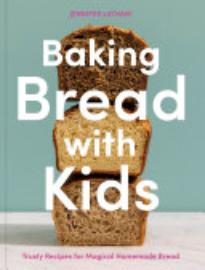LATHAM, Jennifer
3 Articles
Last 30 days
Last 6 months
Last 12 months
Last 24 months
Specific Dates
From:
To:
PREMIUM
Baking Bread with Kids: Trusty Recipes for Magical Homemade Bread
Latham demystifies the bread-baking process for children, teens, and even adults. This cookbook is essential for any beginning bread baker. Highly recommended.
Dreamland Burning
 Mystery fans will enjoy this cleverly plotted, suspenseful work, while the broader social issues will draw a wide audience. Educators will also find this title useful as a selection for discussion and cross-curricular lessons.—Tiffeni Fontno, Boston College Educational Resource Center
Mystery fans will enjoy this cleverly plotted, suspenseful work, while the broader social issues will draw a wide audience. Educators will also find this title useful as a selection for discussion and cross-curricular lessons.—Tiffeni Fontno, Boston College Educational Resource CenterAlternating between the voices of two seventeen-year-olds-a contemporary biracial (her mother is black, her father is white) young woman named Rowan Chase, and Will Tillman, son of an Osage mother and white father, in 1921-this book sheds light on the Tulsa "race riot" of 1921 in which white Tulsans decimated a thriving black neighborhood. During a summer remodel of Rowan's family's home, workers discover a skeleton beneath the floorboards. Rowan plays amateur detective, researching Tulsa history in the hopes of finding clues to the skeleton's identity. In 1921, Joseph Goodhope is the first black boy to convince Will's shopkeeper father (who thinks himself decent because he is willing to sell to black people after hours and has-thus far-not joined the KKK) to accept a payment plan on the honor system. This intrigues Will enough that the young men cautiously form, if not an outright friendship, then a relationship of mutual respect. Their association becomes a life-or-death matter when racial tensions in town come to a head. The intricately plotted mystery is stronger in the historical setting; the present-day narrative abruptly switches focus to questions of morality after Rowan observes a racially charged incident. Latham thoughtfully asks readers to consider the responsibilities of a witness; what it is like to be biracial when belonging to one group is paramount; and about whether saving one person can make a difference in the broader context of society's racial problems. sarah hannah gómez
Scarlett Undercover
A fun, if flawed, whodunit with a diverse protagonist who is an heir apparent to Veronica Mars.
ALREADY A SUBSCRIBER? LOG IN
We are currently offering this content for free. Sign up now to activate your personal profile, where you can save articles for future viewing



